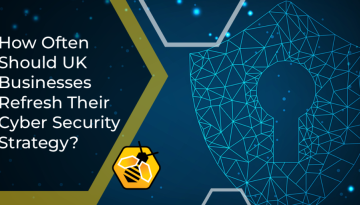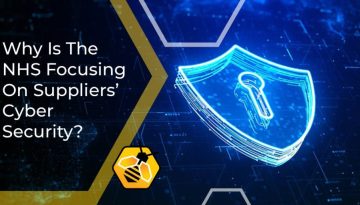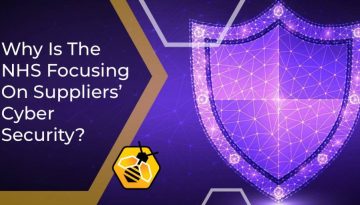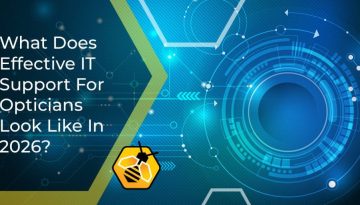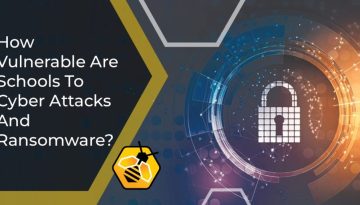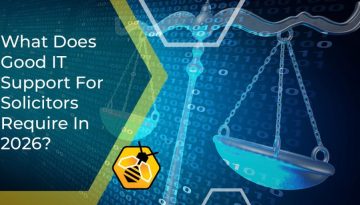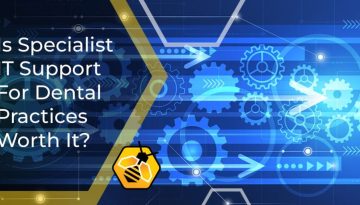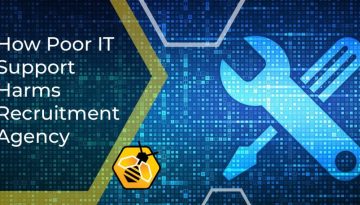How Often Should UK Businesses Refresh Their Cyber Security Strategy?
Cyber security companies often work with SMEs who think staying protected involves installing a firewall, maybe achieving Cyber Essentials certification, and then assume they’re good for a few years. However, this approach is not enough in 2026.
Cyber threats evolve constantly, and attack methods change. Software updates introduce new vulnerabilities, and regulations tighten. If your cyber security strategy isn’t being reviewed regularly, it’s already out of date.
So how often should UK businesses refresh their cyber security strategy? Here’s what to know.
How often should a cyber security strategy be reviewed?
At a minimum, your cyber security strategy should be formally reviewed once per year.
However, that annual review should sit alongside:
- Quarterly security posture reviews
- Monthly patch and vulnerability checks
- Continuous monitoring of endpoints and firewalls
- Immediate reassessment after any major business change
For SMEs, waiting three to five years between strategic reviews is simply too long. The threat landscape in 2026 looks very different to 2021, and it will look different again next year.
What events should trigger an immediate security review?
There are clear trigger points that require a refresh of your strategy:
- Moving office or opening new sites
- Adopting new cloud systems
- Migrating to Microsoft 365
- Implementing remote or hybrid working
- A merger or acquisition
- Failing a Cyber Essentials assessment
- Experiencing a phishing or ransomware incident
Business growth and digital transformation increase your attack surface. Every new integration, mobile device, or SaaS platform creates another potential entry point. If your infrastructure evolves but your security framework doesn’t, gaps form quickly.
Is Cyber Essentials enough on its own?
For many UK SMEs, Cyber Essentials is a starting point, not a complete strategy.
It helps establish baseline controls:
- Secure configuration
- Access control
- Malware protection
- Patch management
- Firewalls
But threats are becoming more sophisticated. Credential theft, business email compromise, and supply chain attacks often bypass basic controls.
Refreshing your cyber security strategy should involve asking:
- Are we relying too heavily on basic compliance?
- Do we have advanced threat detection?
- Are backups isolated and tested?
- Is multi-factor authentication enforced everywhere?
- Are privileged accounts tightly controlled?
Cyber Essentials demonstrates commitment, but it doesn’t eliminate risk.
How do cyber threats change year to year?
Threat actors adapt quickly. Over the past few years alone, we’ve seen:
- A sharp rise in ransomware-as-a-service
- More targeted phishing campaigns using AI-generated content
- Increased exploitation of remote desktop protocols
- Supply chain attacks targeting smaller businesses via larger partners
- Attacks focused on cloud identity and Microsoft 365 environments
SMEs in sectors like healthcare, education, professional services, and engineering are attractive targets because attackers assume defences are lighter than in enterprise organisations.
If your strategy was written around perimeter defence alone, it likely doesn’t reflect modern attack patterns. Today’s security must include identity protection, endpoint detection and response, email filtering, secure backups, and human awareness training.
How often should employee cyber training be updated?
Your people are either your strongest defence or your weakest link. Security awareness training should not be a one-off induction session. It should be:
- Refreshed at least annually
- Reinforced with simulated phishing exercises
- Updated when new threats emerge
- Included in onboarding and offboarding processes
Even the best firewall cannot protect against compromised credentials if staff are unaware of evolving phishing tactics. A refreshed cyber strategy must include behavioural risk, not just technical controls.
What role does technology lifecycle play in security strategy?
Hardware and software age, and ageing technology creates exposure. Outdated servers, unsupported operating systems, and legacy firewalls often lack modern protection capabilities.
Once a product reaches end-of-life, security patches stop. That’s when attackers start looking harder.
A strong cyber security strategy should align with:
- Hardware refresh cycles (typically every three to five years)
- Firewall and network device upgrades
- Operating system lifecycle planning
- Cloud service configuration reviews
- Backup and disaster recovery testing
Security cannot be separated from infrastructure planning. If your technology stack changes, your cyber strategy must evolve with it.
What happens if you don’t refresh your strategy?
Complacency is expensive. The cost of downtime, reputational damage, regulatory fines, and lost client trust can far exceed the cost of proactive security management.
Many SMEs only discover weaknesses when:
- A backup fails during recovery
- A phishing attack compromises payroll
- A firewall hasn’t been updated in years
- An employee account remains active after departure
If your strategy hasn’t been reviewed in the last 12 months, it’s time to act. The question isn’t whether threats are evolving: they are. The real question is whether your security strategy is evolving with them.

